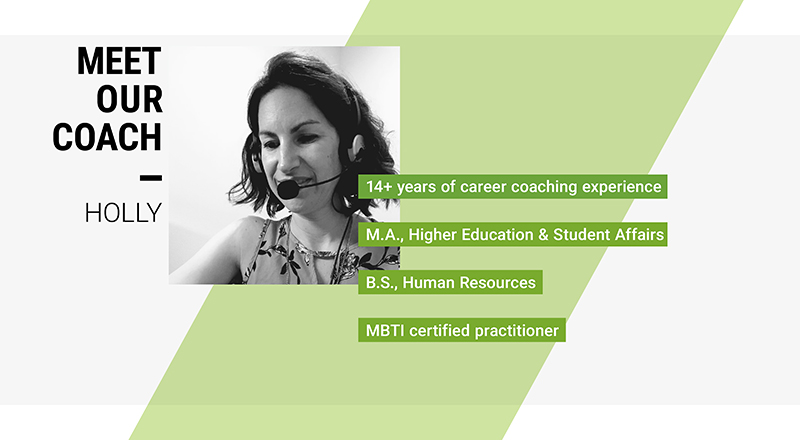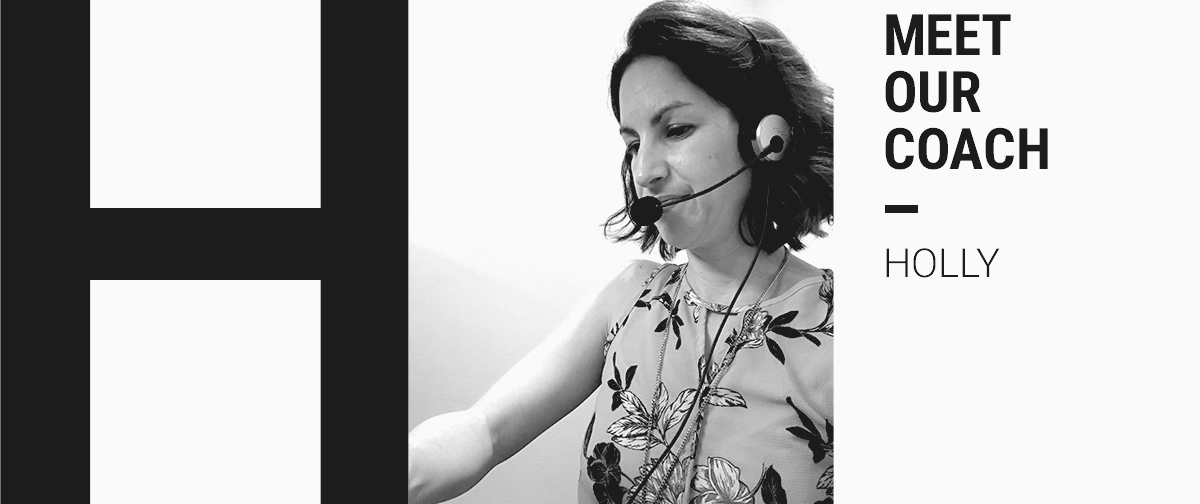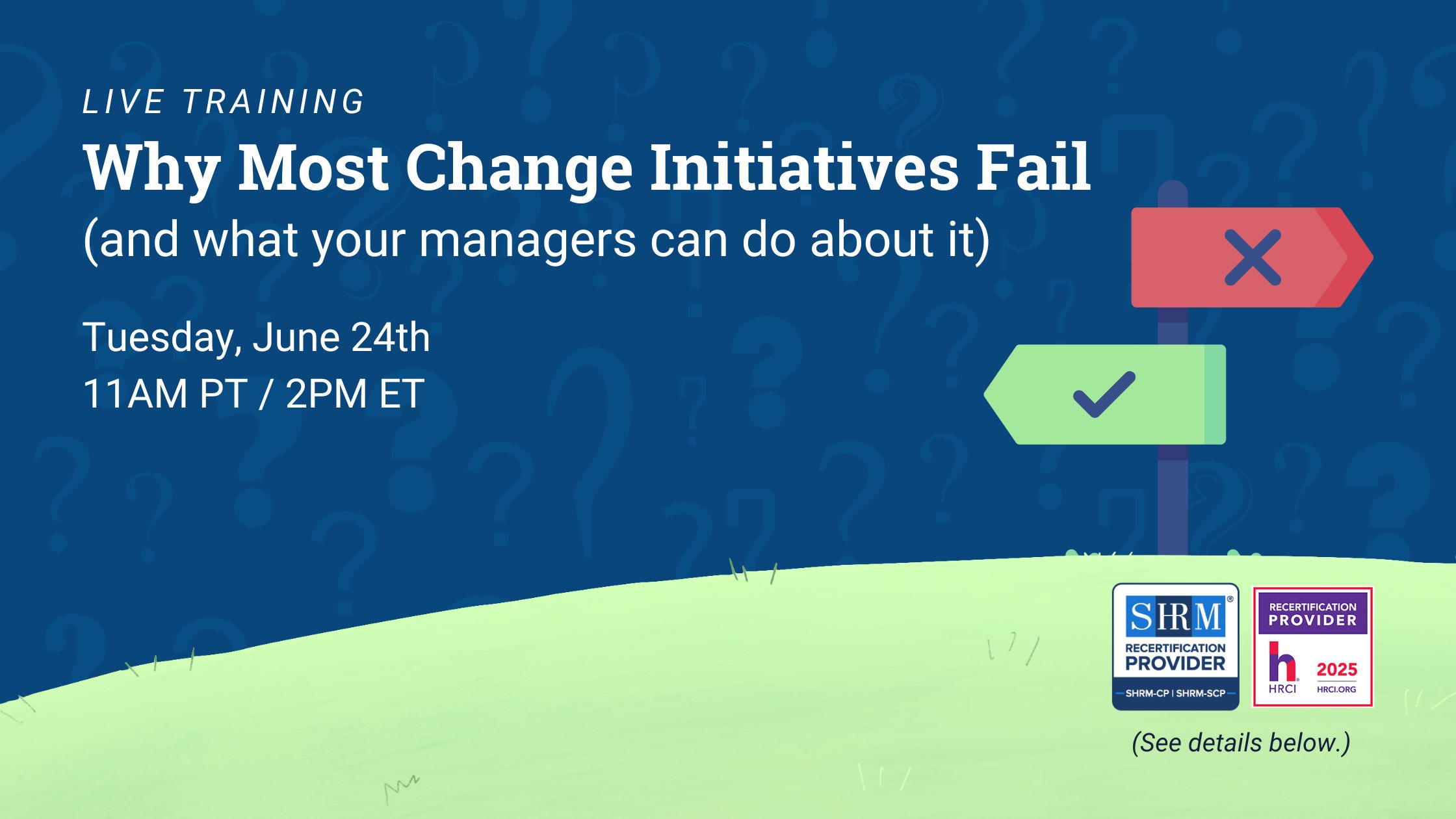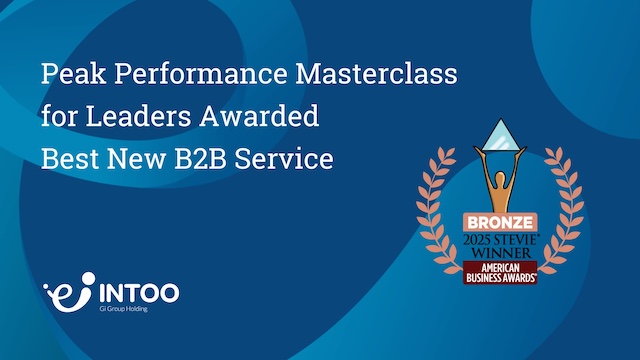“We push you outside your comfort zone”: A Chat with Holly, Intoo Career Coach
In the internet age, it’s easy for job seekers to focus too heavily on online employment boards, their career search efforts beginning and ending with applying to advertised positions through their computers. But even today, not everything can be found on the web. Most job opportunities aren’t publicly advertised, and many career opportunities are still found through real-life networking.

That’s why Holly, Intoo career coach, encourages the candidates she works with to try things that aren’t so easy, but will ultimately lead them to the kinds of positions they truly want. With 14 years of career coaching experience—as well as a master’s in higher education and student affairs and a bachelor’s in human resources—Holly is skilled at pinpointing for individual candidates the career search strategies that will be most beneficial for them, and providing the encouragement candidates need to go after their goals.
In this Q and A, Holly details the motivational support and practical guidance she provides for Intoo candidates.
I focus a lot on what people bring to the table. A lot of times, people get stuck in, “Well, this is what I did. This was my task. This was my responsibility.” But a bullet point that says they performed tasks similar to others in the same field doesn’t showcase their individual strengths.
What can a Intoo’s outplacement solution candidate expect when they first click “chat” and connect with you?
I try to create a really comfortable environment. Even though there may be lots of things for the candidate to work on, I don’t start there. That can be very overwhelming, and it can also make people feel a little bit on guard. Instead, I start out the conversations being very welcoming, kind, supportive—creating a non-judgment zone so they’re more likely to be open to feedback. I want them to feel like I’m their partner in the process. That’s really important to me—to create a space where people feel uplifted, feel empathy.
From there, I like to shift into building confidence and cultivating a sense of pride. For a lot of the clients that I see, their confidence is shaken. Building that confidence back up and helping people to see what they have to offer is really important.
A lot of clients will say to me, “I’m very humble. I let my work speak for itself.” Well, that’s great, but in a job search, you have to sell yourself. You have to be in a place where you can toot your own horn. That’s a big shift that I try to then move into.
Do have a philosophy or a personal process that you like to follow when you’re coaching?
I focus a lot on what people bring to the table. A lot of times, people get stuck in, “Well, this is what I did. This was my task. This was my responsibility.” But a bullet point that says they performed tasks similar to others in the same field doesn’t showcase their individual strengths.
I’ll ask clients: “What is it about you that adds value? What is it about you that’s unique and different? How are you setting yourself apart from your competition?” I hammer on that a lot, because that’s really what any job search is—answering the question, “Why should I hire you over someone else?” I really try to get people in that mindset of focusing not on their history and background, but on their singular, distinctive qualities.
I have a lot of clients who are interested in remote work or the nonprofit space, and I’m able to connect them to job board specific to those positions.
For people who don’t think they need a career coach, could you talk about what the benefits of working with a career coach are?
I would say from an emotional perspective, having a career coach gives you a support system. Oftentimes, the job search can be a very overwhelming, intimidating, and difficult process, and so I think having a support system is really helpful.
It’s also helpful to have an objective set of eyes. We might look at our résumé and believe it’s great, or we might think we’re doing a good job interviewing, but we’re often not aware of the blind spots that we have or the areas where we can improve. Not only can career coaches give you unbiased feedback, but they can also help you to see new opportunities for improvement.
Also, a career coach’s ability to connect people to resources that they may not be familiar with is huge. Some of those resources can make all the difference in the job search. For example, I have a lot of clients who are interested in remote work or the nonprofit space, and I’m able to connect them to job board specific to those positions.
For those who haven’t been in the job market a while, I can bring them up to speed on changes in technology and the way things are done. LinkedIn is a huge, huge, huge part of the job search process today, but some people aren’t aware of that or don’t know how to use online networking tools. That’s where I can help. I help with enhancing their professional profiles, asking for LinkedIn recommendations, crafting a strong headline—all those important details.
Lastly, as professional career coaches, we push you outside your comfort zone. As I mentioned, a lot of people will say to me, “I’m not good talking about myself. I’m not good tooting my own horn. I keep my head down and I just do my work.” With these candidates, I help them get in that mindset of communicating value and selling themselves. This includes going to networking events or working with recruiters. That’s something that I encourage people to do a lot, to think about their strategy in a multifaceted way, instead of just relying on job postings. I think career coaches have that that big picture understanding of the process to guide candidates toward their goals more quickly.
Career coaching is kind of like teaching people how to fish. They may use the knowledge from our sessions for the next job, then maybe in a couple of years they might be in another job search and use those tools again.
What’s your favorite part about being a career coach?
Helping people to be successful for the long term is probably my favorite part. Career coaching is kind of like teaching people how to fish. They may use the knowledge from our sessions for the next job, then maybe in a couple of years they might be in another job search and use those tools again. I view success as a lifelong process. Once they have the tools, they have the information and resources to put them on their path to achieving their life goals, whatever that looks like for them.
___
Intoo coaches have an average of 12.9 years of career development experience, and receive an average rating of 4.8 out of 5 stars from users. Schedule a demo to learn more about Intoo’s outplacement services, which includes one-on-one, on-demand coaching from premier career counselors, resume reviews, video interview coaching, and more career transition tools and services.











